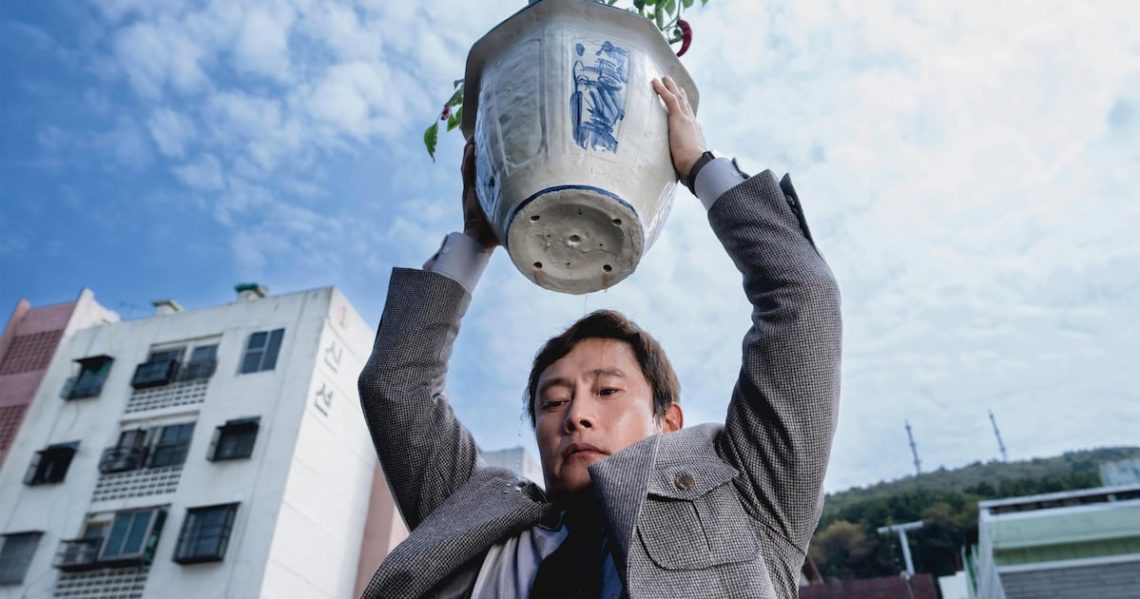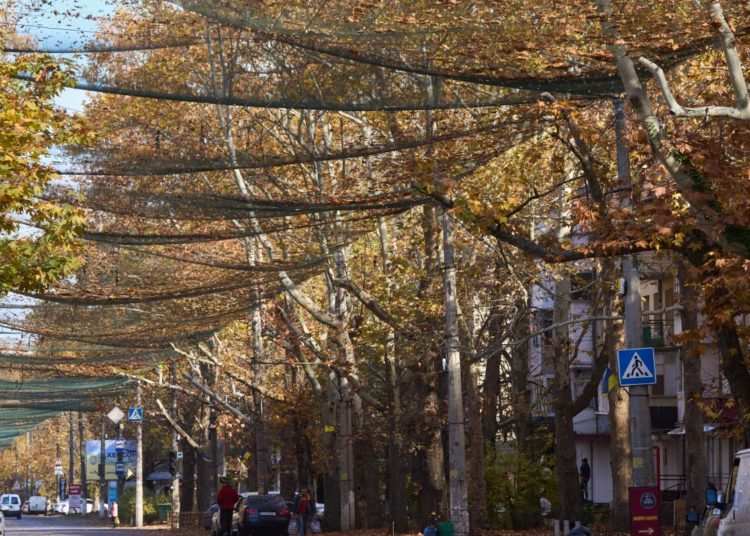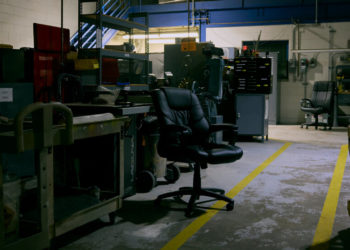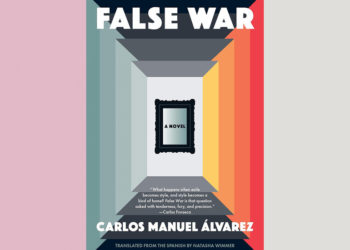No one directs a movie like Park Chan-wook (Oldboy, The Handmaiden, Decision to Leave), and the South Korean auteur puts on a master class of lithe, silky, sumptuous storytelling with No Other Choice.
Marrying majestic camerawork with inventive transitions, fluid cross-cutting, and overlapping imagery and narration, Park turns his latest into a feast for the senses, and the fact that, in this case, such aesthetic showmanship is employed for absurdly scathing humor is merely further proof of his formidable artistry.
A pitch-black satire about the ways in which capitalist competition and traditional social, familial, and gender roles and expectations combine to create chaos, the filmmaker’s biting comedy (based on Donald Westlake’s novel The Axe) is a caustic portrait of the rat race as legitimately killer, and another feather in the cap of one of world cinema’s true maestros.
South Korea’s entry for the Best International Feature Film Academy Award, and screening at the New York Film Festival ahead of its Dec. 25 theatrical premiere, No Other Choice is the tale of You Man-soo (Squid Game’s Lee Byung-hun), a 25-year veteran at a paper company that’s just sent him an eel as a thank you for his lengthy service.

Happy with his job, his success (he was 2019’s Pulp Man of the Year!), his spacious home (which is where he grew up), and his family—wife Mi-ri (Son Ye-jin), teenage son Si-one (Kim Woo Seung), and adolescent daughter Ri-one (Choi So Yul), who rarely speaks or allows her parents to hear her play the cello—Man-soo proclaims, “I’ve got it all.”
Unfortunately, he doesn’t have it for long, since he’s subsequently, unceremoniously fired. Forced to contend with a job market that’s oversaturated with similarly unemployed men, Man-soo struggles to find a new gig, as epitomized by a witty scene in which the glare of the sun conspires to thwart a promising interview.
Faced with hardship, Mi-ri announces that the clan must cut back on familiar comforts, including giving away their beloved golden retrievers and, just as traumatizing, cancelling their Netflix subscription—an announcement that sends Si-one and Ri-one scampering away from the dinner table to sneak in one more show before they lose access to the streamer.
Having abandoned her career to spend her days playing tennis and dancing, Mi-ri reenters the workforce as a dental hygienist, but it’s not long before mortgage debt compels the couple to put their home on the market. All the while, Man-soo spins his wheels toiling in his garden and watching an online video about Moon Paper, a thriving outfit he’s dying to join. Thanks to an offhand comment from Mi-ri, however, Man-soo realizes that the answer to his dilemma is to have others perish—beginning with Moon Paper’s bigwig Choi Seon-chul (Park Hee-soon).
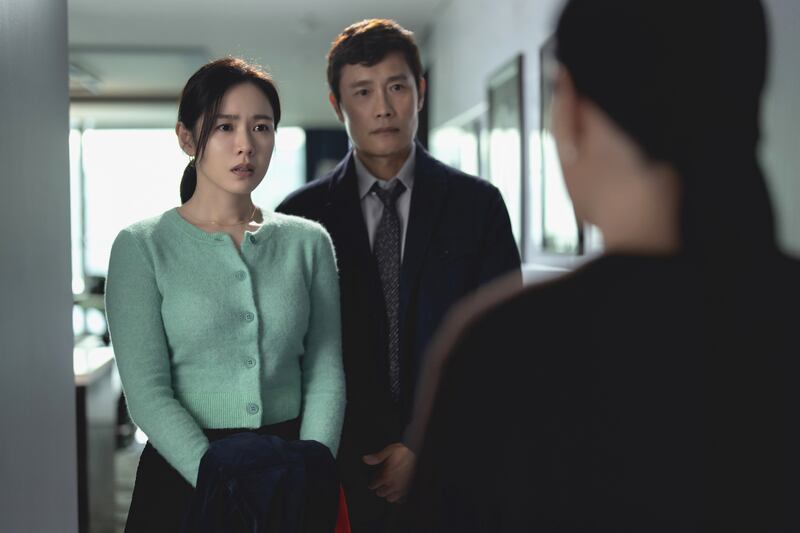
No Other Choice isn’t the first comedy about the homicidal lengths to which people will go to secure (and preserve) their livelihood, but Park’s nimble stewardship breathes thrilling life into the conceit. From swooping crane shots and pressing zooms into and out of close-up, to lateral pans that seamlessly connect consecutive incidents, the director infuses his action with creative beauty.
His cast’s performances are similarly adept, led by Lee Byung-hun as a head of household driven increasingly mad by the pressure to live up to his responsibilities as a father, husband, and breadwinner. The actor’s slapstick antics are of a hilarious Looney Tunes variety, and yet he doesn’t render Man-soo a cartoon; rather, his goofy and clumsy stabs at rectifying his situation are rooted in real feelings of shame, fear, and desperation.
With the gun that his father used in Vietnam, Man-soo sets out to execute Seon-chul. Before he can commit the dirty deed, though, he grasps that even with the executive out of the way, he’ll still have to best any number of candidates for the position. Thus, he gets an even brighter idea: elicit resumes via a magazine ad for a fake paper company, deduce which individuals are his stiffest rivals, and murder them to secure his spot as the cream of the crop.
Amazingly, this ruse works like a charm, helping Man-soo pinpoint Goo Beom-mo (Lee Sung-min) and Go Si-jo (Cha Seung-won) as his two likeliest challengers. From there, No Other Choice sends its protagonist spiraling out of control, not only because he’s a mild-mannered guy wrestling with dark, demented impulses, but because he discovers that his targets are sad sacks to whom he can intensely relate.
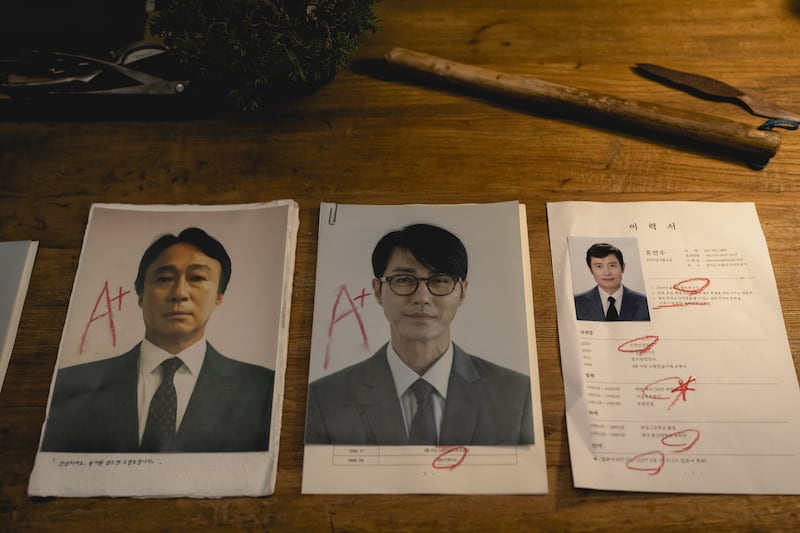
Written by Park, Lee Kyoung-mi, Jahye Lee, and Don McKellar, the film complicates Man-soo’s odyssey with a variety of mini-crises, all of which—be it Mi-ri’s apparent closeness to her handsome boss Dr. Oh Chin-ho (Yoo Yeon-seok), or Si-one’s decision to supplement the family’s earnings via his own criminal enterprise—speak to the job-hunter’s hang-ups and failings.
No Other Choice elegantly balances its multiple concerns, and its style leads to routine laughs, as when Park tilts his camera upward to stare at Seon-chul and, above him, Man-soo holding a giant pot which he intends to drop on the unsuspecting guy’s noggin. Park locates just the right strain of zaniness for his quasi-Parasite critique of the modern fight to stay afloat, and his command (of tone and narrative) never wavers as the proceedings tie Man-soo up in knots.
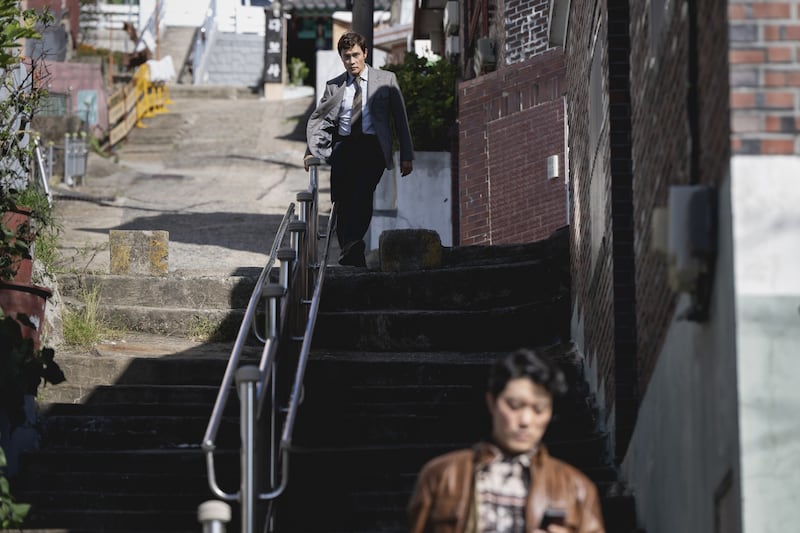
No Other Choice cuts deeply with a smile on its face, its characters pitched between recognizable men and women who’ve fallen on hard times (and are coping with the consequences of their misfortune) and exaggerated types who scream, weep, fume, flop, and flail about like lunatics.
Park fleshes out all his players, including Man-soo, whose effort to maintain his sobriety is related to his attempt to accomplish his professional goals without going wholly off the rails, and their distinctiveness contributes to the material’s depth. It’s Park’s formal flair, however, that gives the film its electricity, transforming it into a live-wire snapshot of the quest to be the last man standing.
For Man-soo, that mission turns out to be literal, given that, like so many others, his industry is racing toward an inevitable artificial intelligence future. No Other Choice is amusing in a choke-on-your-laughter sort of way, arguing as it does that humanity’s real war isn’t just for self-respect, purpose, and family, but against obsolescence. Nonetheless, Park provides a reason to still have hope—if for no other reason than his film boasts an imagination, acuteness, and vitality that no machine could ever fully duplicate.
The post The Funniest Satire of the Year Is Perfect for Our Cutthroat Times appeared first on The Daily Beast.
